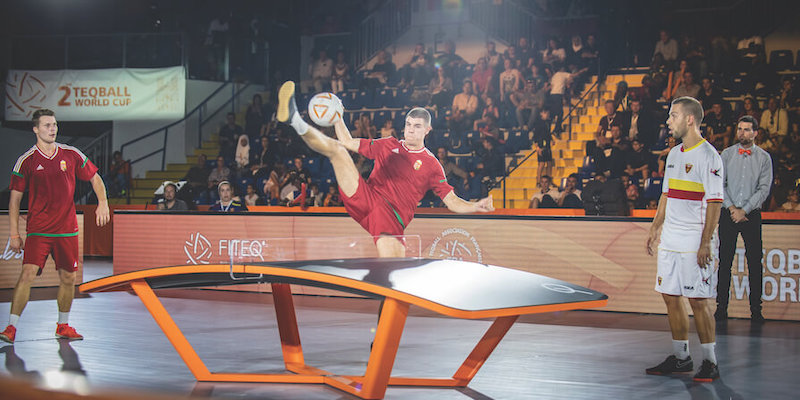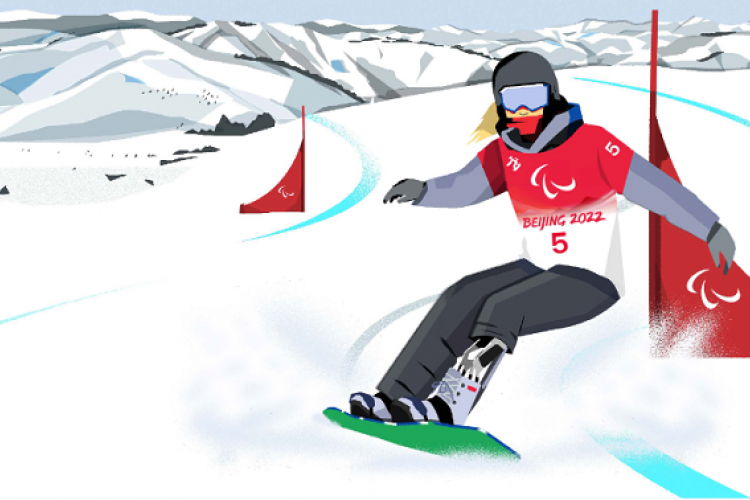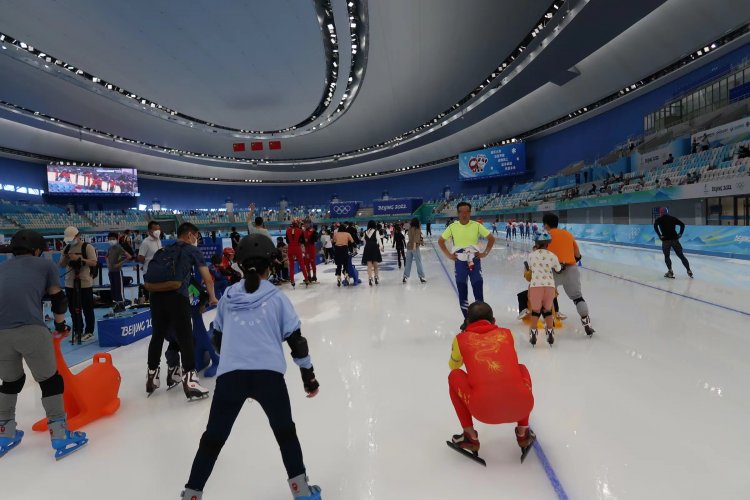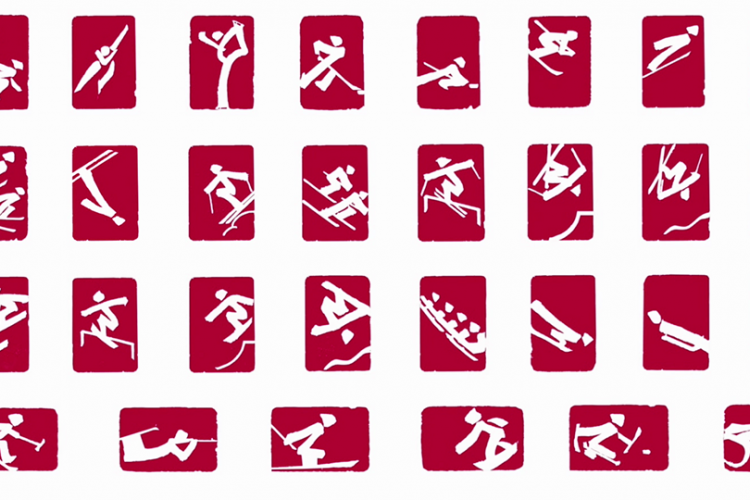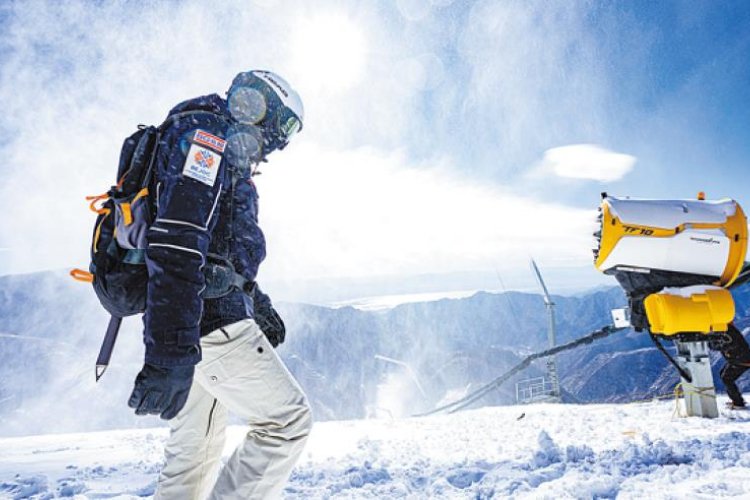OlymPicks: Not Your Average Teq Start-Up, and Life Lessons From a 17-Year-Old Snowboarder
In OlymPicks, we highlight news, gossip, and developments regarding the buildup to Beijing's 2022 Winter Olympics.
Teqball takes Beijing by storm
Teqball has officially landed in the capital ahead of its debut at next year’s Asian Beach Games in the island city of Sanya, an event that was supposed to take place this year but had to be postponed due to the coronavirus pandemic.
What is teqball you ask? Well, it’s a combination of table tennis and football – the original football, not the US one – and was invented by three Hungarians in 2012, with its first official match taking place in 2014. Likewise, the first Teqball World Championship was held in Budapest, Hungary in 2017, and saw roughly 20 nations vying for the gold. By the 2019 championships, that number had more than doubled to 58 countries.

Given that teqball is relatively unknown amongst the general public, an exhibition was held last month during the Beijing Olympic City Sports Culture Festival, hosted by the Beijing Olympic City Development Association (BODA) and International Federation of Teqball (FITEQ). Despite the BODA’s involvement, teqball is not yet ready for the Olympic stage, however, its increasing presence in Asia and Africa – it was officially recognized by each continents’ Olympic Councils in 2018 and 2019, respectively – as well as Europe, makes it a likely contender for 2032.
Played on a curved ping-pong table, otherwise known as a teqball table, single players or teams of two are allowed to use any part of their body except for their arms and hands to hit the ball. Matches are played to 12 points, with each set consisting of three matches.
Snowboarder Red Gerard shares life lessons
At 17-years-old, Red Gerard was the youngest American to take home a gold medal since the Great Depression, when he tore up the slopes at the 2018 PyeongChang Games. Despite the requisite discipline to become an Olympic athlete, at the time, Gerard was no less angsty than your average teenager, telling Men’s Health magazine that he was, admittedly, a “punk-ass,” and couldn’t fathom why the Olympics “had so much hype around them.”

Nevertheless, three years later and with his sights firmly set on a gold medal repeat at Beijing 2022, Gerard has detailed four ways in which he’s shedding his rebellious facade in favor of a more mature approach to life. From diversifying your interests to “getting good at being bad,” and maximizing downtime to generally staying humble, Gerard’s lessons are ones we’d all do well to remember.
Skier Manuel Osborne-Paradis calls it quits
Whereas Red Gerard is focused on clinching another top spot, Canadian skier Manuel Osborne-Paradis has decided that, despite his lengthy career and four appearances at Olympic Games, a gold medal is something he will never be able to claim. That’s not to say the 36-year-old hasn’t had an illustrious career. He’s won 11 World Cup medals in competitive racing, three of which were first-place finishes, not to mention his bronze medal in the super-G world championships and the seven world championship medals he won as part of the Canadian men’s Alpine ski team between 2009 and 2017. Yet, much to Osborne-Paradis’ chagrin, due to a broken tibia and fibula back in 2018, coupled with COVID-19 lockdowns and quarantine this year, he doesn’t see a path forward to a successful Olympic performance. “The whole point is to have a chance at a medal at the Olympics,” Osborne-Paradis told the Associated Press. “If I can’t win, then I’m not going to waste people’s time.”
In the end, Osborne-Paradis’ best Olympic finish will have been 13th in a downhill competition at the 2006 Games in Torino, Italy.
READ: OlymPicks: 500 Days To Go Til Wintry Athletes Hit the Snow
Images: rapidtvnews.com, snowboarder.com
Related stories :
Comments
New comments are displayed first.Comments
![]() China Boy
Submitted by Guest on Tue, 10/20/2020 - 22:10 Permalink
China Boy
Submitted by Guest on Tue, 10/20/2020 - 22:10 Permalink
Re: OlymPicks: Not Your Average Teq Start-Up, and Life...
I presume Red Gerrard tore down the slopes rather than up them!
Validate your mobile phone number to post comments.

